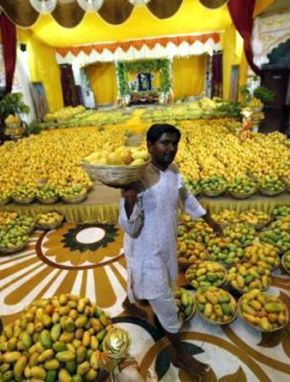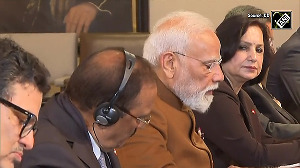 The 28-member European Union's ban on the import of Indian mangoes came into force from Thursday, despite widespread criticism from exporters and consumers.
The 28-member European Union's ban on the import of Indian mangoes came into force from Thursday, despite widespread criticism from exporters and consumers.
The "temporary ban" will remain effective until December 2015 after authorities in Brussels found consignments infested with pests they fear could damage European salad crops.
UK imports around 6.3-million pounds worth of Indian mangoes per year out of a UK mango market worth 68 million pounds in total.
Non-European food pests were found in 207 shipments of fruit and vegetables in 2013.
The ban also includes aubergines, two types of squash, and a type of leaf called patra used in cooking.
Indian mango exporters have said they have put checks in place and have been lobbying the authorities in Brussels to get the ban lifted.
More than 1,400 people have signed an e-petition on the UK government website calling to 'Reverse Mango Import Ban.'
Keith Vaz, Labour MP for Leicester East that hosts an annual mango festival, has been campaigning on behalf of his constituents and took a case of Alphonso mangoes, known as the "king of fruit", to 10 Downing Street on April 29 – residence of Prime Minister David Cameron -- to raise awareness against the ban.
"The Prime Minister has shown that he is a champion of our relationship with India. I understand that the Indian government has complied with the rules set out by the EU and there is, therefore, no reason for this ban to go ahead.
"It will cost millions of pounds of lost revenue to the British economy and result in millions of mangoes going to waste in India," he had said.
UK's Department for Environment, Food and Rural Affairs (Defra), which voted to put the ban in place, is working with Indian officials and the European Commission to get it lifted.
Environment minister Lord de Mauley said: "India is a key trading partner and these temporary restrictions affect a tiny percentage of the successful business we conduct with them.
"We are working closely with our Indian and European counterparts to resolve the issue and resume trade in these select products as soon as possible."
Critics have argued the ban is disproportionate and will have a devastating impact on local growers, UK businesses and Britain's trade relationship with India.









